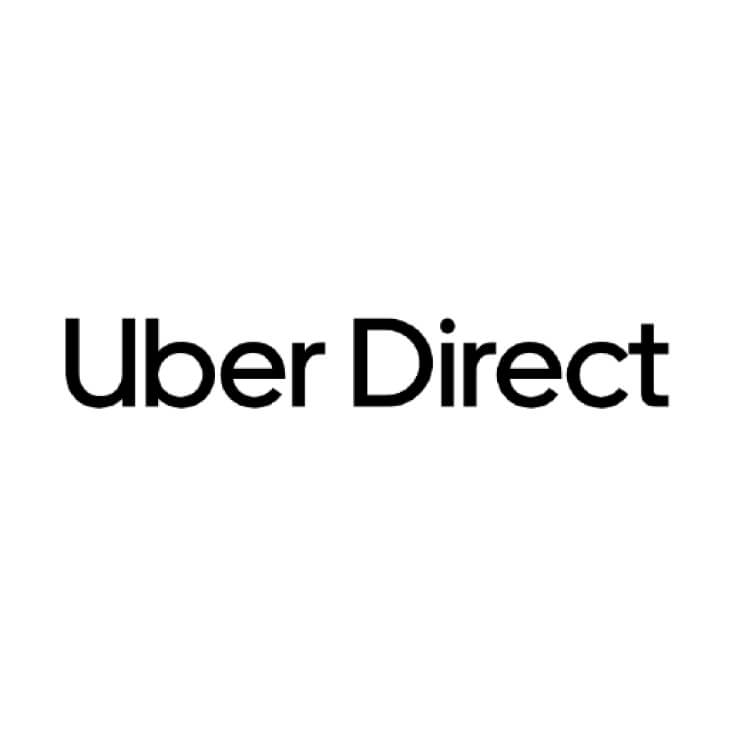Why Do You Need a White-Label Social Network?
The dynamic social media landscape presents a world of challenges for entrepreneurs worldwide. Building a solid presence is challenging, especially if you’re navigating complex algorithms. It’s practically impossible for a business to control its user experience over the internet because it is primarily dependent on the platform being used for community building and positioning the business in the minds of its target audience. Moreover, the time and energy needed to build a social network can be yet another hassle for an entrepreneur. Businesses that are unable to position themselves aptly or capture the attention of the target audience lose out on thousands of dollars in potential revenue. A one-stop solution for these businesses is a White Label Social Network to establish their social presence.
In this blog, we will explore the significance of a White Label Social Network platform and dive into its advantages, empowerment capability, and ability to create a deep customer connection and brand loyalty in the long run.
Let’s begin!
What is a white label social network?
Before we explore a white-label social network, let’s first understand what a white-label product is. A white-label product is designed and produced by a manufacturer who sells it as an entity to another party. The buyer adds its own branding to this generic product and presents it as its own to its target audience.
White-label products can be found everywhere today, including clothing, electronics, stainless steel bottles, cosmetics, etc. In this era of technology, white-label products can also be found in high-tech items like computer programs, software solutions, and mobile applications like social media apps.
A white label social media platform is a pre-built social network that helps businesses create their own branded social media presence. With this platform, they don’t need to create a social network app from scratch. Businesses can then create a community-driven online space that is personalized/tailored to a brand’s specific needs. The platforms come ready-made with features that are already found in social networks, like activity feeds, messages, user profiles, etc.
Why should you use a white label social network?

The design of white-label social media management services is intended to increase consumer involvement. A social media manager ensures uniform branding and smooth implementation by first understanding the target audience.
These services support custom content generation and strategy development, allowing brands to develop their distinct voices and tailor their marketing tactics to their goals. Moreover, they improve efficiency and scalability by allowing for personalized requests that meet the needs of each particular customer while also appealing to the intended audience.
Now that you know the basic concept of what a white label platform brings to the table, let’s discuss all the advantages it offers to businesses. A white label social network offers your own branded online community area. It has prebuilt features and tools offered by a software vendor.
See our latest relevant exploration How To Create A Social Media App Design
![]()
1. Cost Effectiveness
Creating a social network platform from scratch might be costly. Opting for a white-label solution eliminates the need for costly development activities, greatly lowering the total expense.
Focusing on customization and user engagement rather than developing the full platform can help businesses use their resources more efficiently.
2. Deployment Efficiency
A white-label social network has pre-built features, cutting down on development and deployment time. Businesses don’t need to hire a developer to create a social media app for their business. In today’s digital space, this efficient time to market allows businesses to establish a solid online community quickly.
3. Branding
White label solutions provide significant levels of customization, allowing businesses to tailor the platform to their corporate identity. This includes using logos, color palettes, and other branding components.
This allows businesses to provide a personalized and consistent user experience and increases brand recognition and trust among community members.
4. Manageable Technical Complexity
Creating and sustaining a social networking platform requires dealing with complex technical issues. A white label solution simplifies the process by allowing the platform provider to handle technical concerns like as upgrades, security, and infrastructure. This alleviates the pressure on internal technical teams, allowing them to concentrate on more important elements of the business.
5. Scalability
White-label platforms have been designed to be flexible and scalable. They can effectively accommodate the growth of user bases and content. This ensures a seamless user experience, and the community grows by leaps.
6. Smooth Functionality
White label social network platforms frequently include a comprehensive range of features typically associated with established social networks. These include user profiles, activity feeds, chat systems, and content-sharing capabilities, forming a solid platform for building interesting online communities without having to start from scratch.
7. Rapid Adaptability
Social media trends and consumer preferences change rapidly. White label solutions are continuously updated by their providers to include the most recent features and security precautions. This means that organizations using the platform can smoothly embrace innovations without requiring large internal development efforts.
Features of a White Label Social Network

The characteristics of a white label platform significantly impact the success and functionality of an online community. These platforms include various vital features, including branding customization, user profiles, activity feeds, and content-sharing options.
Basic Features
1. Customizability
White label social networks provide a ready-made solution to you. A platform like this caters to your business needs effectively. You can pick and choose between different colors, logos, and backgrounds to create an online presence that is congruent with your brand aesthetic.
For example, if your social network app revolves around discussions, customize the white label app for discussion boards. This helps you have in-depth conversations on your platform for real-time engagement.
2. Messaging
Messaging is a powerful tool for social media applications and extends far beyond simple communication. It builds a sense of community, amplifies your brand voice, and improves engagement. It also ensures business growth by targeted communications, content generation, and building brand loyalty in the long run.
3. Socializing
White label social networks offer a platform for public interaction. You can add friends, send them messages, and add content online. You can then create an influential social presence. This results in building deeper connections, brand advocacy, and increased engagement, making your app a huge success.
4. Groups
When you cater to a wide online community, different interests can often lead to scattered and dispersed conversations and information overload. White-label social networks typically have the Group feature to ensure that like-minded individuals are connected and targeted content and engagement is shared with the right target audience.
5. Archive
A solid archiving feature offers a world of benefits for your white-label social network app and offers several benefits for your community and your brand. It is a great way of preserving memories and milestones, creating an institutional knowledge base, and content curation and storytelling.
6. Analytics
A white-label social network can never be successful if you don’t understand your audience. Analytics is an integral component of any social media app and equips you with invaluable data about your community, user behavior, and content. Analytics help you with consumer persona development, content performance tracking, trend identification, and engagement rate analysis.
Advanced Functionalities of a White Label Social Media App
Now that you know all the basic features needed to develop a white-label social network app, let’s explore some advanced functionalities that will set your app up for success in the long run. These advanced features incorporate innovative technologies to create a more engaging, interactive, and dynamic user experience. This ultimately strengthens brand loyalty.
1. AI Recommendations
AI-powered recommendations help you analyze user behavior, monitor content interactions, and suggest search queries to different groups of people based on their engagement. This personalized approach keeps users engaged and constantly feeds them fresh, interesting, and community-building content.
2. Gamification
Gamification is a popular feature that has been added on platforms like LinkedIn to create a fun and rewarding user experience. If incorporates elements like badges, points, leaderboards, and other challenges to incentivize user activity.
3. AR/VR Integration
Augmented Reality (AR) and Virtual Reality (VR) technologies revolutionize how we interact with the people around us. If you integrate this technology into your app, you can offer users a more interactive and immersive user experience. Users can use it to try on products before they actually buy them. This innovative technology helps push your boundaries and creates exclusivity.
4. Social Integration
The integration of your white label social network app with other major social networks like Facebook, Twitter, and Instagram allows users to share content from your app on these platforms. You can ensure that your white label social media content reaches more people than it would have previously. This helps attract new users and builds a solid presence online.
5. Live Streaming
Live streaming offers a unique opportunity for real-time connection and interactions. A white-label app that has live-streaming capabilities allows brands to host live events, Q&A sessions, product demonstrations, and exclusive BTS glimpses.
6. Public Vs. Private
You can choose whether your app should be a public or private network. A public network is a good choice if you want to attract a wider user base and showcase your brand to the world. However, a private network is the better choice if you want to offer exclusivity, content moderation, and personalization of content to a specific audience.
Popular Examples of White-Label Social Media Apps

Various white-label apps are available in the market today, including Uber Direct and SocialPilot’s social media management platform. These services enable you to incorporate them into your app and offer them to your customers under your brand.

1. Uber Direct
Uber Direct is a common example of a white-label service. It helps clients add on-demand delivery to their sales channels. This pay-per-use delivery option allows customers to integrate Uber’s service seamlessly with their existing channels.
Customers who use Uber’s white-label solution enjoy complete control over the delivery service and interact directly with the end client rather than depending on Uber, ensuring full authority over the process.

2. Sociavore
Sociavore strives to be a one-stop shop for all things relating to your restaurant or ghost kitchen. This program combines a unique restaurant website, reliable online ordering and reservation systems, and the option to purchase gift cards. Using Sociavore allows you to bring your brand to the consumer in a way that would otherwise be difficult.
How can Coding Pixel help you create a White Label Social Network App?
At Coding Pixel, we have a team of experienced professionals with extensive knowledge of building and customizing a white-label social network app. We understand the unique needs of online communities and can translate your vision into a user-friendly and feature-rich platform.
We can help you build a scalable and functional application for your business. See our Social Network Development Service ![]()
FAQ
White-label social media services are provided by a social media agency that helps businesses by delivering comprehensive social media services to ensure their success.
Some of the best white label marketing tools include MixBloom Ltd, Agency Platform, Active Campaign, Semrush, and VendAsta.
White labeling an app means buying a generic app from a company and rebranding it as your own. The buyer can then add their own branding to it.
Masifa is a Content Specialist with a bachelor’s degree in marketing and over three years of experience in content marketing and the IT industry. She is passionate about writing and talking about website and mobile app development, e-commerce, and advancements happening in the IT Industry. She creates engaging and user-centric content to optimize digital experiences for these niches. When she is not creating content, you can find her buried in a good book.